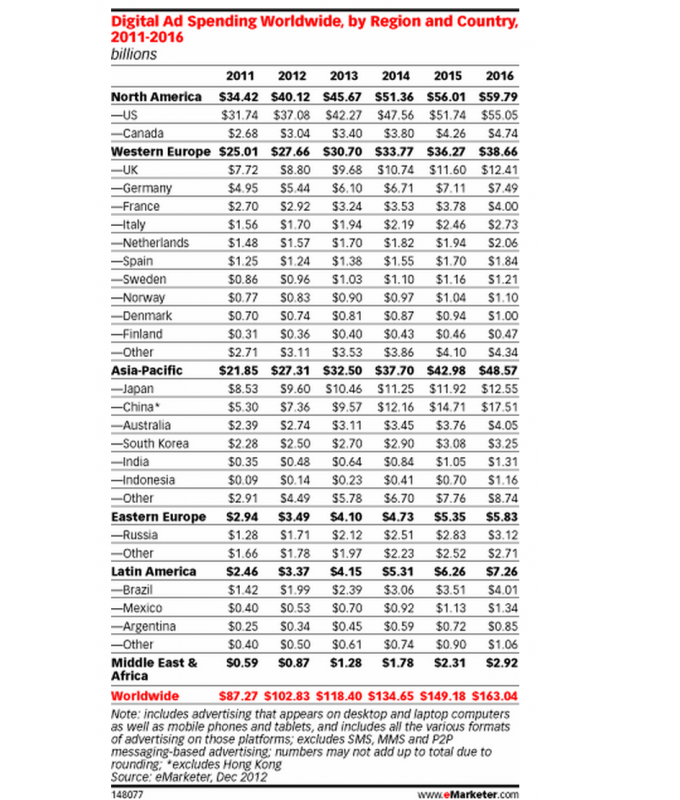The UK Economy Turns to the Digital Sector for Sustained Growth
Last week The Guardian published an article revealing that the British economy expanded by 1.9% in 2013. This was infact the fastest GDP growth since the first quarter of 2008. Things are looking up.
The news that the UK economy has grown at its fastest rate since the financial crisis will come as welcome news across all industry sectors, however, the digital sector is one British industry that has seen little (if any) effect of the financial turndown over the past five to six years.
In 2012 the digital sector employed 3 percent of the UK workforce, contributing nearly £69 billion Gross Value Added (GVA) to the UK economy (7.4 per cent). Measured by GVA per employee job, the digital sector is one of the most productive in the UK economy at £83,000 per annum, almost twice the UK average for all sectors.
Digital agencies across Britain are reporting significant employment growth and business expansion with the employment growth in the sector rising by an average rate of 5.5 percent between 2009 and 2012. Leeds has seen significant growth within the city’s digital scene and digital hot-beds outside of London are sprouting up regularly.
Many of the Leeds based digital agencies have opened up new offices in Manchester and London and even overseas working in partnership with other agencies in business development efforts.
However, that’s not to suggest that agencies are looking to source work overseas in response to the poor economic climate in the UK, far from it.
The digital growth over the past five years has been substantial considering the state of the UK economy and this has been as much down to commercial success in the sector at home, as well as abroad.
Digital agencies are seeking to expand to new markets and tap in growing parts of the world (Asia in particular) where digital growth is heavily competing with the UK and US. This is somewhat due to the growth of the digital ad spending which has grown over the last two to three years and which eMarketer predicted to grow towards 2016.

With growing technologies, accessibility and in particular mobile device growth, the UK population’s affection for technology is growing, and those with a disposable income are purchasing tablet and smartphone devices. This has grown our relationship with the internet, in turn increase value in ad spend and digital marketing.
The Internet Advertising Bureau report in partnership with PwC, showed that British consumers spend 43 hours a month online – or about one in 12 of their waking hours. This will certainly rise over the course of 2014 as mobile browsing tariffs become more competitive and 4G becomes standard across many of the UK’s major cities. The report continued to reveal that almost a quarter of this time is spent watching entertainment online with a further 12 per cent spent blogging or social networking. The Financial Times backed this data and reporting that the UK’s digital advertising spend was up 17.5 per cent over the first six months of 2013 totally more than £3 bn, a record high.
With digital advertising spends becoming more competitive and new ad platforms creating smarter and more insightful perspectives for reaching and converting target audiences gaining a competitive edge online is becoming more and more challenging. The digital ad platform has made reaching audiences and specific target markets easier than ever before. Twitter launching its ad platform recently in the UK will be a particular network to watch over 2014.
So is the digital sector economically safeguarded and in some respects ring fenced by the development of technology and progression of digital accessibility?
Away from digital ad spend the UK Commission for Employment and Skills published Technology and Skills in the Digital Industries highlighting other areas of digital that demonstrate the rise in the sectors prominence.
The reported focused on four core areas: cyber security, mobile technology, green IT and cloud computing. At the heart of growth is the need to find a competitive edge online and establish a 360* brand presence where digital brand development becomes a focus for businesses across the UK.
The digital sector will continue to guide the country through to a better economic state towards the end of the decade as businesses invest more in the digital marketing as technology develops.
How does the digital sector impact your region’s economy? We’d be interested to know! Drop us a line on Twitter or through our contact page.